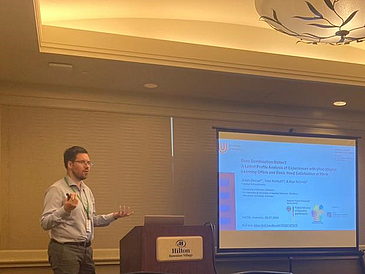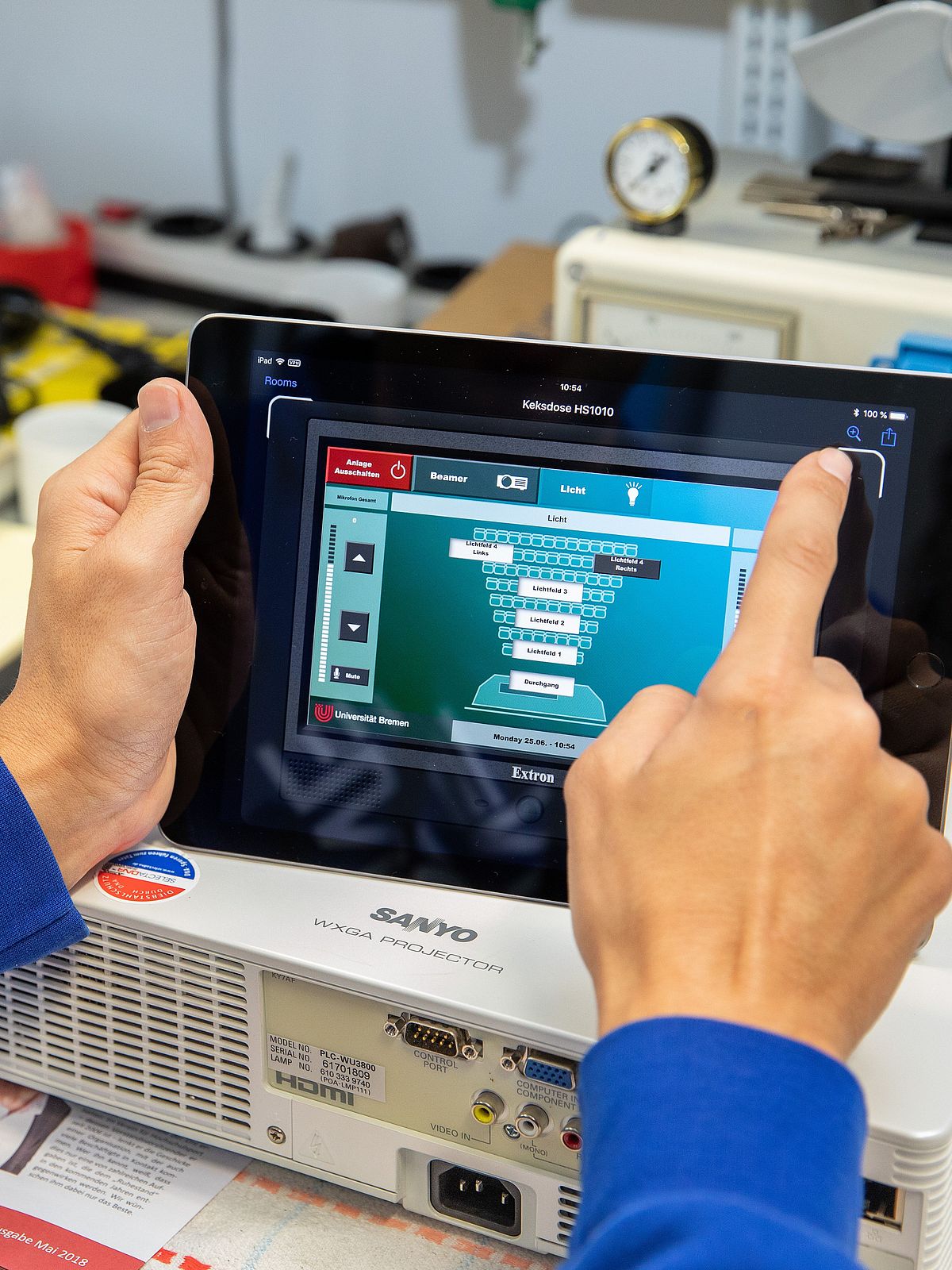Dr. Julian Decius reported on work-related learning profiles at the 57th Hawaii International Conference on System Sciences (HICSS) in the mini-track "Digitization of Work", chaired by Tobias Scholz and Juho Hamari.
In his presentation, he and his co-authors Timo Kortsch and Anja Schmitz explored the following research question: To what extent are the experiences of face-to-face learning (e.g., traditional classroom training), synchronous virtual learning (e.g., real-time web seminar), and asynchronous virtual learning (e.g., e-learning environment with learning nuggets) related to the satisfaction of basic needs at work according to Self-Determination Theory?
The sample of over 3000 employees allowed meaningful latent profile analyses to be calculated. The research article was published in the HICSS proceedings and is freely accessible here.








